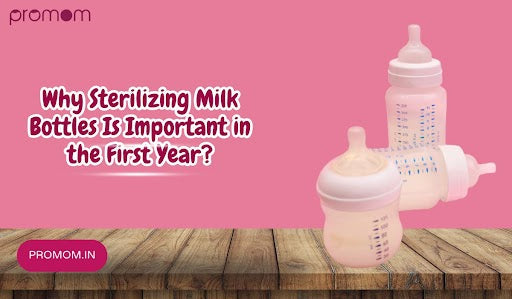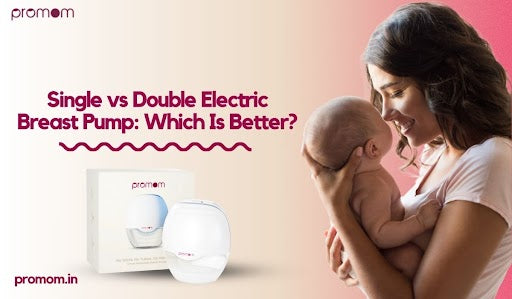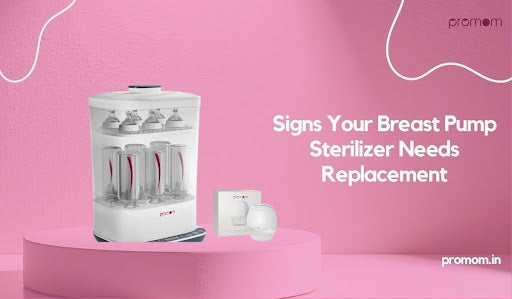
Is a Breast Pump Worth It? Pros and Cons for New Parents
When new parents first meet their baby, they feel joy yet become immediately consumed by the challenge of caring for this little one. New parents must determine if they want to buy a breast pump as part of their infant care system.
A breast pump brings many advantages to breastfeeding despite being a natural body function. The device brings many advantages but also creates some problems for users. We will analyse both benefits and challenges to show you if a breast pump suits your needs.
What is a Breast Pump?
A breast pump is a medical tool that helps lactating women get breast milk from their breasts for future use. Breast pumps exist in two basic forms: hand-operated manual models and electric versions that run on battery or plug-in power. Breast pumps help mothers protect their milk production and prevent chest discomfort by giving them the milk they need when breastfeeding directly is not possible.
The device suits mothers who work, need breastfeeding help, or want their partner to participate in feeding the baby. The breast pump helps parents manage feedings however they need to while helping feed the baby properly.
Pros of Using a Breast Pump
A breast pump adds great value to your parent role by helping you handle issues around flexibility, milk supply, and discomfort. Here are some of the pros of using it:
1. Convenience and Flexibility
A breast pump allows mothers to store milk for life so that the baby will still be fed when the mother can’t feed her. Particularly useful to working mothers who need to go back to work while supplying milk to their infants.
2. Helps Maintain Milk Supply
Regular pumping can maintain or boost milk production for mothers having low supply. Additionally, it cuts the chance of getting mastitis by helping prevent engorgement and blocked ducts.
3. Shared Feeding Responsibility
In cases of expressed milk, partners or carers are able to feed as well, giving mothers time to rest. It also helps to strengthen the relationship between the baby and other family members.
4. Supports Preterm or Low-Birth-Weight Babies
Some babies may find it difficult to latch onto the breast. A breast pump allows them to still get their nutrients not only from breast milk but also from the lack of direct breastfeeding.
5. Help in Special Medical Situations
Mothers with medical conditions or medications that temporarily prevent breastfeeding can pump and store milk to use later. Some babies may also need to be tube-fed, and pumped milk continues to feed them the best nutrition.
6. Builds a Freezer Stash
Pumping to create a milk reserve is useful for mothers who plan to be away for a long time. This is particularly useful in emergencies, travel, or transitioning out of home and back to work.
Cons of Using a Breast Pump
There are pros and cons of using a breast pump, so parents need to weigh these before. It is convenient, but it can be a pain in terms of time, cost, and emotional concerns. Here are some downsides:
1. Time-Consuming
Multiple times a day, sessions last 15–30 minutes per session. It can become expensive and tedious to set up, pump, and clean the equipment.
2. Can Be Expensive
There are several models of breast pumps, ranging in price from manual to electric models that can cost tens of times more. Furthermore, storage bags, replacement parts, and sterilisation equipment increase expenses as accessories.
3. Discomfort and Pain
Using the wrong flange size can give other mothers a sore or otherwise uncomfortable nipple while using a breast pump. Finding one’s comfort rhythm with the suction setting often takes time.
4. Cleaning and Maintenance
If it’s a breast pump, it needs to be regularly cleaned and sterilised to prevent bacteria contagion. For new parents, this adds one more thing to a packed full schedule.
5. Dependency on Electricity or Batteries
The electric breast pumps are dependent on power sources, so they cannot be used for travel or when they run out of power. An alternative is manual pumps, which are a bit more effort.
6. Potential for Reduced Breastfeeding Bonding
Frequent pumping may worry some mothers that it will diminish the bonding that occurs during direct breastfeeding. There can be a balanced approach that would keep both practices in check.
Final Verdict: Is a Breast Pump Worth It?
Breast pumps can be a lifeline for lots of mommies, providing flexibility, ease of use, and support in special circumstances. This is not a necessity for everyone. A breast pump can make sense if you have a lifestyle that doesn’t allow for you and your baby or if you experience breastfeeding challenges.
If you are planning on breastfeeding exclusively without a lot of interruptions, maybe it isn't really necessary.
It’s ultimately a matter of individual needs and circumstances. Before deciding, assess your lifestyle, breastfeeding goals, and budget.
Need help finding the right breast pump? The quality of breast pumps at Promom is good, comfortable, and very efficient. Explore our collection today!


